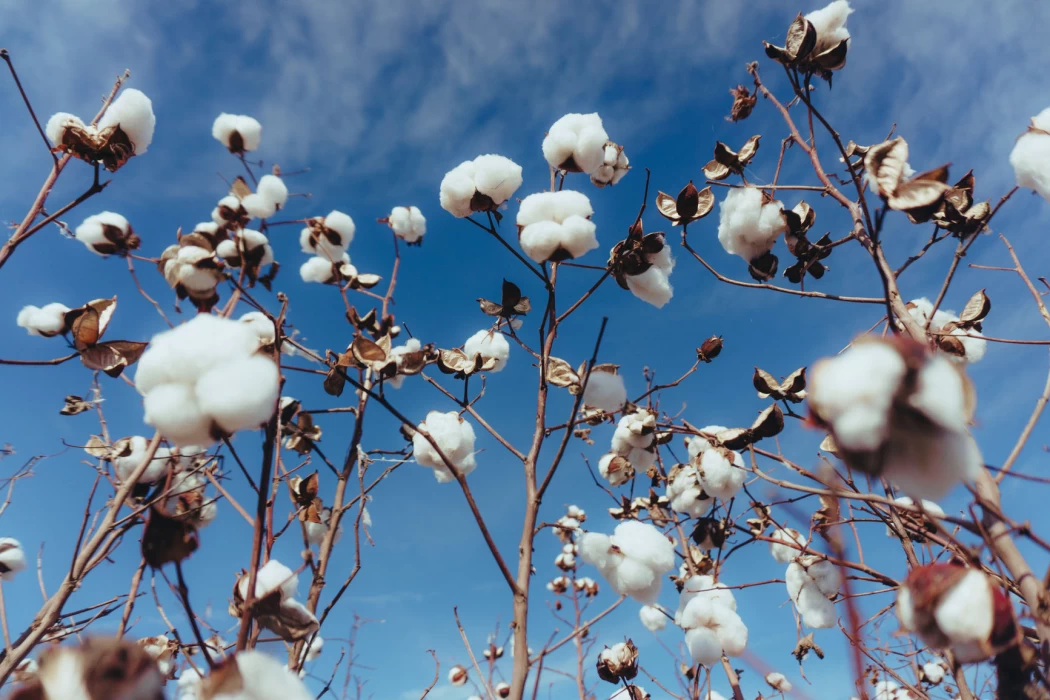
Egyptian Cotton | Long staple cotton
Egyptian Cotton
Egyptian cotton enjoys a global reputation due to its exceptional quality. He continued: We plan to double exports, so that there is an economic return for the state and a suitable return for the Egyptian farmer, and there is sustainability.
Egyptian cotton is at the top of the world's cotton quality, saying: "We are number one in terms of the highest quality, and number two in production for the simple reason that the cultivated area has decreased. Cotton is grown worldwide as either short staple or long staple. As for long staple, it is about 500 thousand tons, and Egypt grows about 20% of them. Egypt produces two types of cotton, either long staple or what is called premium long staple cotton. There is no country in the world that produces premium long staple cotton.
We share with the world only in long staple cotton, and Egypt is number 2 in production but number one in quality, and India is number one as it produces 25% of the world’s cotton production, and China is number 2 producing 25%, then the United States, when we produced 13 million we had a problem in manufacturing them, and Egypt throughout its history produces cotton it does not manufacture and manufactures cotton it does not produce, and we had quality cotton but we could not market it, and at the present time there is a state plan to advance the cultivation and production of Egyptian cotton and in one year we planted 125 thousand acres of cotton.
Latest Articles
Admin
Aswan Governerate in Egypt
One of Egypt's southern governorates is Aswan Governorate. The city of Aswan serves as its capital. At a latitude of 22 north of the equator (also known as the Tropic of Cancer), it is bounded to the north by the Qena Governorate, to the east by the Red Sea Governorate, to the west by the New Valley Governorate, and to the south by the Republic of Sudan.
Admin
Luxor Governorate Egypt
The capital of the Arab Republic of Egypt is Luxor City, which was once known as "Thebes City" because it served as Egypt's capital during the Pharaonic era. It is situated in the South Upper Egypt region, approximately 670 kilometers from the capital Cairo from the south. It is bordered on the north by Qena Governorate, on the south by Aswan Governorate, on the east by Red Sea Governorate, and on the west by New Valley Governorate.
Admin
History of kafr El Sheikh Governorate
Kafr El Sheikh Governorate is an Egyptian governorate, located in the northernmost part of Egypt in the Nile Delta, with Kafr El Sheikh as its capital. It had a population of 3,172,753 in 2015 and an area of 3,748 km². Its entire area is located north of the delta and overlooks the Mediterranean Sea. The main economic activity of the residents of the governorate is agriculture and fishing, especially the southern lands of the governorate and the lands overlooking the Nile River - Rosetta Branch.
Admin
Egypt's New Administrative Capital
The New Administrative Capital is located between the Cairo-Suez and Cairo-Ain Sokhna roads, 60 km from Cairo and the same distance from Ain Sokhna and Suez. The New Administrative Capital is located on the border of Badr City, in the area between the Cairo-Suez and Cairo-Ain Sokhna roads, just after New Cairo, Mostakbal City and Madinaty.
Admin
Al Gharbia Governorate
Gharbia Governorate is one of the governorates full of archaeological sites, whether they are places or facilities (mosques, churches), as the governorate is a destination for visitors to these places throughout the year, whether they are Egyptians from the different governorates.
Admin
Hamata Islands (Qulaan Archipelago) in Marsa Alam
The Hamata area, south of Marsa Alam in the Red Sea, is one of the most important parts of the Wadi El Gemal Reserve, whether in the desert or the sea. It was named after the sorrel plant, which was distorted to Hamata.















